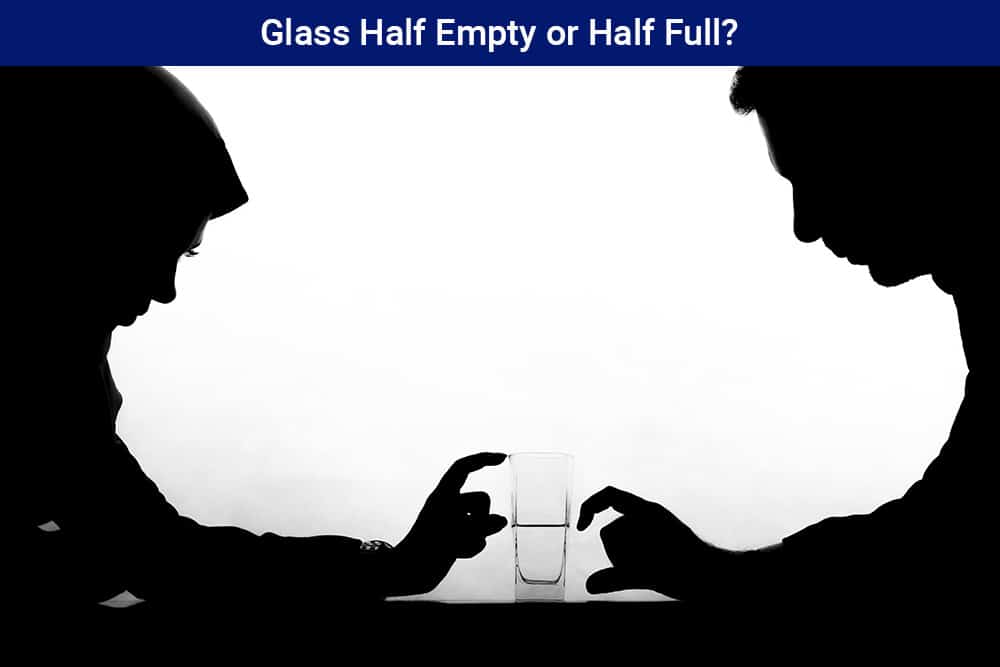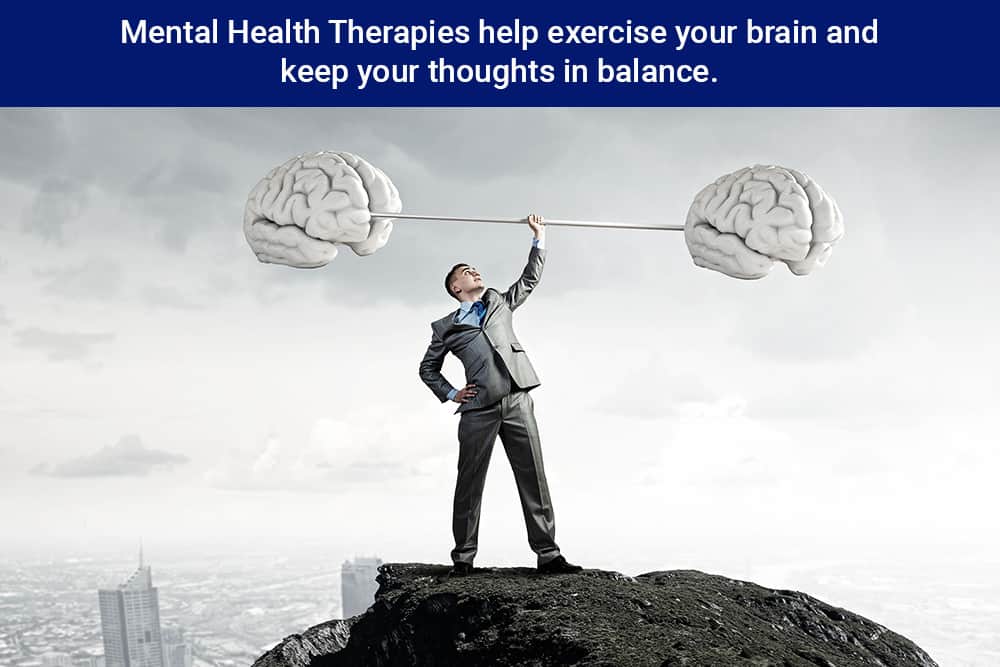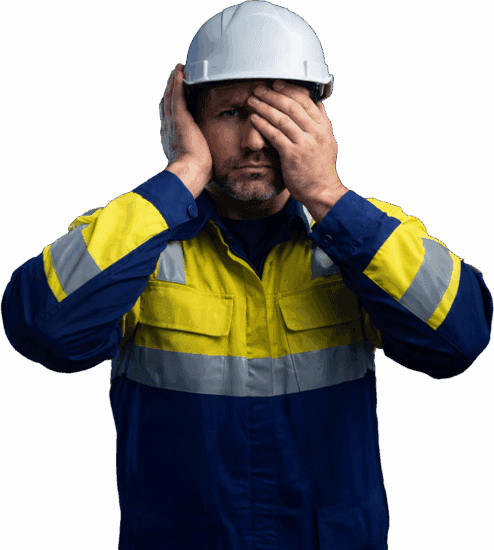
When it comes to our mental health, how we see the world says much more about our inner wellbeing than our surrounding environment. A pessimistic view can make even the smallest setback a real struggle, and anything worse than that nearly impossible.
Fortunately, there are things we can do to change how we see the world. One of these is mental health therapy. Therapy isn’t just for those that are struggling, but for everyone that wants to build and maintain positive mental health.
But there are numerous types of therapy out there, so how do you know what to choose? And how will it benefit you? This blog will take a look at a variety of options to give you an idea of what is out there.
What Does Mental Health Mean?
The World Health Organisation (WHO) definition of mental health is, ‘a state of mental well-being that enables people to cope with the stresses of life, realise their abilities, learn and work well, and contribute to their community.
There are many definitions but ultimately our mental health is a cocktail of our emotional, psychological and social wellbeing. Our thoughts, feelings and actions can all be affected by how healthy our minds are. The state of our mental health determines how we deal with things from the minor – missing the 07:28 train to London Waterloo – to the major, like the loss of a loved one.
Mental Health Courses
Our mental wellness courses help overcome the stigma associated with mental health challenges and provide practical techniques for managing such challenges in professional settings. The courses aim to protect employees’ mental well-being, improve productivity and enhance work and personal life balance.
Half Empty or Half Full?
While cliché, the analogy is a good one. How do you tend to see your glass? Those who view the world with optimism will declare the glass is half full, whereas those who are naturally pessimistic will say that it is half empty. Two very different interpretations.
Researchers have found that these different ways of looking at the world play a big role in mind mental health. In particular, they have found that people suffering from depression consistently view the world in a very negative way, that most people would view as unrealistic.
It’s as though they look at their glass and only see a tiny drop at the bottom. It’s these distorted patterns of thought that make life appear hopeless.
And that is not to say that those that tend to see the glass half full are problem free. The truth is we all have distorted patterns of thought. It’s a part of being human.
Fortunately, whatever our unrealistic world view, you may have there are ways to remind ourselves that it is exactly that – unrealistic and untrue. Today, there are numerous types of mental health therapy which can help us do that.
Types of Mental Health Therapy
Ever tried to search ‘mental health therapy’ online? The results are likely to have you reaching for that glass, whether it seems half empty or full. There is an extensive range of mental health treatments, so understanding the various types of therapy available and what they can achieve is an important first step when dealing with mental health disorders. Let’s focus on just some that are available and may be effective for you:

Counselling
Counselling is a form of talking therapy. The aim of counselling is to help people deal with a range of emotional issues such as anxiety, depression and low self-esteem. It is also effective when tackling the mental effect of physical conditions such as reduced person health and challenging life events like a relationship breakdown or a bereavement.
Counselling is usually held over a number of sessions with a qualified therapist. Their role is to not to tell you what to do or give you advice. Instead, they help you to understand and process your thoughts so that you can come up with your own solutions to your problems. Sessions can take place face-to-face, through live chat, on the phone, even by email.
Cognitive Behavioural Therapy (CBT)
CBT is highly effective in helping people become aware of negative thought patterns and see how they damage their mental health. Awareness then helps to adjust them to more positive, healthier patterns.
CBT can be used for panic attacks, phobias and post-traumatic stress disorder (PTSD), with the aim being a change of mindset.
This form of therapy focuses on simple techniques – like keeping a thought diary – which help people identify patterns to their thoughts. By being able to see the patterns, there is the opportunity to pinpoint areas for improvement.
A six to eight-week CBT course can change the way people view the world. CBT has been proven to be just as good as anti-depressant drugs, with the added bonus of there being no side effects and it continues to work even after it has been provided.
Existential Therapy
Another mind management technique is existential therapy. This type of psychotherapy looks at a person’s inner conflict, including concerns about life in general like death, meaninglessness and freedom and responsibility.
If not dealt with, these feelings can lead to substance use and misuse.
After listening to your concerns, a therapist will put together a treatment plan that could include more discussions on morality, awareness of death and why it is important to try to live your best life while you have it. It will look at freedom and the choices you have at your disposal. The end goal with existential therapy is to find your meaning in life.
Family Therapy
We all know the saying, ‘blood is thicker than water’ but that does not mean that you will always get along with your family members. Indifferences and conflict with your family can really have a deep impact on your mental wellbeing given that they are your blood.
Dealing with issues through therapy can provide relief and bring families together.
Family therapy considers the whole family unit, by looking at relationships between family members and considers everyone’s individual experiences. It can be really useful when there is a family member who suffers from addiction, a serious mental illness or when relatives are experiencing conflict, grief or anger.
The aim is to strengthen relationships, open up communication channels and identify negative and positive (it’s not all bad) behaviours. By doing so, the hope is that bonds are toughened.
Creative Therapy
Not all therapy involves sitting down and talking. Some forms allow for us to tap into our creative side. Think art, music, dance. All give the opportunity to communicate thoughts, feelings and emotions creatively.
Art therapy, for example, can prove useful for people with physical illnesses, behavioural, emotional and mental health problems and life-limiting conditions. The core aim is to provide a safe place for people to express their emotions, without fear, where they will not be judged.
Mindfulness and Meditation
It may seem that mindfulness is a trend of the moment but it is actually a 2500-year-old eastern/Buddhist philosophy, that focuses on what is good in the here and now.
It includes simple techniques like noticing the sights, smells and sounds around you– really taking them in and enjoying the present moment.
Think about your day – a lot of the time you are lost in your thoughts – perhaps worrying about paying a bill, or what someone said to you yesterday. When we do this, we are oblivious to what’s going on around us.

Mindfulness helps can help you step back from your thoughts and live in the present moment. When you are fully focused on the present, it’s impossible to be worried or anxious – your brain can’t do both at once.
Being mindful can be done anywhere, anytime.
Meditation requires you to sit in a quiet place close your eyes whilst you observe your thoughts and quieten your mind – but just 10 to 20 minutes a day is all that’s needed.
Again, research has shown that mindfulness and meditation is very effective brain training, that has been shown to reduce severe depression and prevent relapses.
Where To Go For Help?
A good place to start is by visiting your GP. They will be able to recommend a therapy type that will suit you and something that is local too.
Another avenue to try is within your workplace Employee Assistance Program (EAP), if your employer offers one. Many employers recognise that employees may need help with their thoughts and feelings, so such programs can be seen as a sort of mental health occupational therapy. Where offered, it is often part of the employee benefits scheme. It is free, sessions are confidential and with a qualified therapist.
If you feel comfortable with asking friends and family, you may be surprised at how many of your nearest and dearests have also embarked on a journey to improve their mental wellbeing through therapy. Word-of-mouth can be a good way to go.
Making Mental Health A Priority
When you decide to start your journey to maintaining a healthy mind, make it a priority to find a type of therapy that suits you.

Take time to do your research, ask questions and also make sure the therapist is right for you. There is a lot of information out there but don’t give up, there is something out there for everyone.
For a taster, you could try the mental health resilience – mind management skills course from Human Focus. In just 25 minutes and on a device of your choice, you can gain insights into:
- How the mind works
- The elephant & the rider metaphor for understanding the brain
- Automatic thoughts and thought management
- Cognitive behaviour therapy
- Mindfulness meditation
Human Focus offer several mental health courses to help you identify were you can make meaningful changes in your personal life to improve your mental health or how you can support colleagues, friends and family with mental health awareness.





















